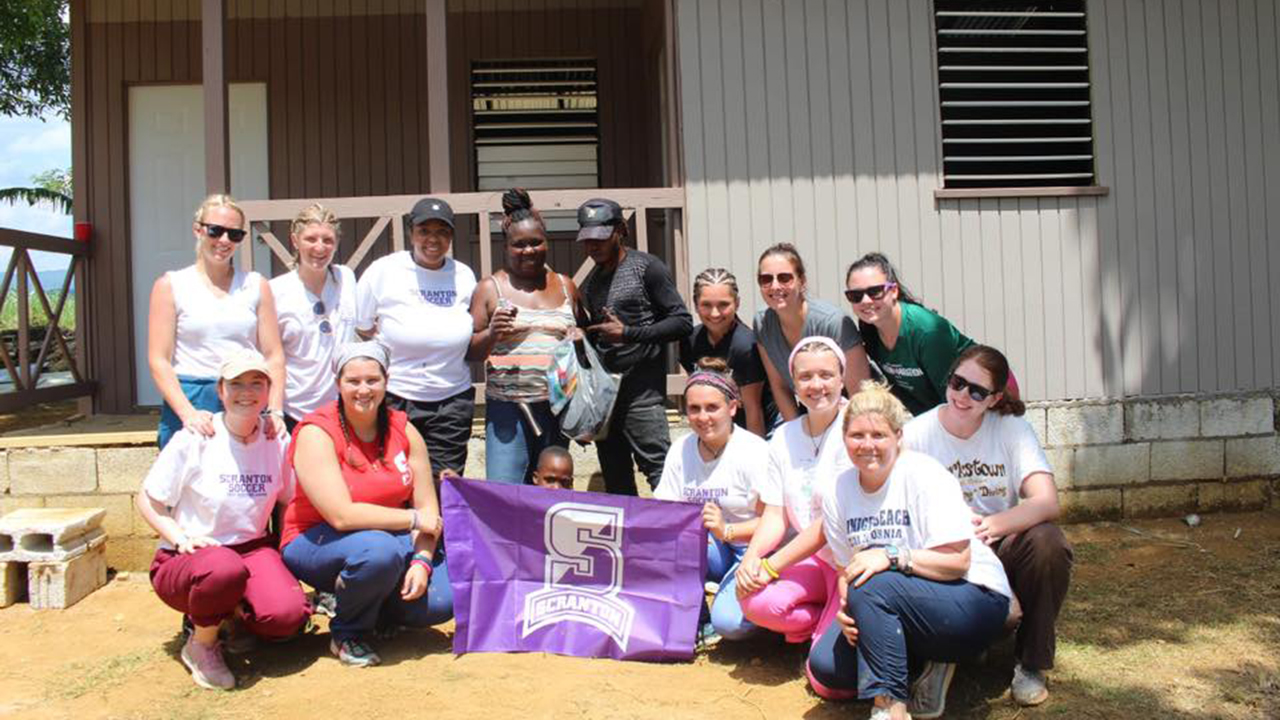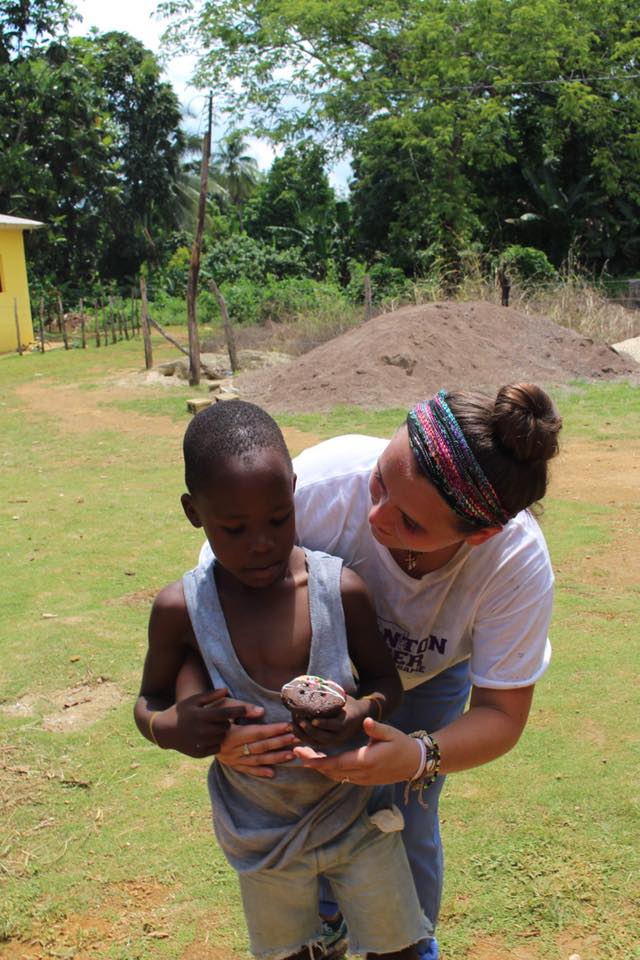Choosing a Lens: An ISP Reflection

It is hard to describe an experience such as a cultural immersion trip. Prior to going on to a service trip, you have a fire in your gut to serve and give back to the world. You are eager to build as many houses, schools or structures you can get your hands on. You are eager to help the sick, to help the disabled and to fulfill society’s definition of “service.” On May 28, 2019, 12 members of The University of Scranton hopped on a plane to Jamaica with a burning passion to serve and set the world on fire. However, quickly into our experience we learned the meaning of service, which is not doing, but being: “the world, God, or any higher power, does not want us to do, they want us to be.”
Throughout the trip we discovered a lot about the country of Jamaica and the culture, and the most important discovery was the one about ourselves and the meaning of service. Before hopping on a plane to Jamaica, our group met several times to discuss and learn together about Jamaica and the meaning of service. During these meetings, our peer facilitator talked about our “gifts and gaps” within ourselves, our world and our community. Our experience to Jamaica helped to strengthen our gifts and helped to discover some of our gaps and taught us how to overcome them with the help of our peers, loved ones and the world.
The Stories
Throughout our trip, we had the opportunity to meet individuals from all walks of life. We heard these people’s stories, listened to their cries, stared at their smiles and lived in solidarity with them. We visited a plethora of places ranging from nursing homes for adults with no families, orphanages for children of all abilities and ages, a preschool for beautiful children with their entire lives ahead of them, and we built a home for a deserving family. These individuals came from a wide range of backgrounds, economic statuses, family structures and different values.
Toward the end of our trip, we had the opportunity to build a home for a family of five. The home would be for a family with a mother, her three children (21 years old, 18 years old, 12 years old), and 1-year-old grandson. This family has never owned a home nor owned many belongings. Over two days, my fellow 11 group members and I built a home for this family in need. We were able to do a tangible service and create a home for them. This family was waiting for a home for over two years, on the last day of construction it was the mother’s birthday. We celebrated the finishing of the house and this incredible mother’s birthday. The entire community came to the house to watch Father Paul, our chaperone, bless the house and to see this deserving family finally get something that belonged to them. It was two days filled with hard work, sweat and intense labor; however, it was beautiful to see something that we created that is going to have such an impact on this family. However, after reflecting on those two days, it occurred to me that the service was not the physical labor of building this house. The service that we provided was being with the family, the community and the other relatives. The service was not how many nails we could hammer into the roof; it was playing soccer with the 7-year-old nephew. The service was not painting multiple coats of paint on the house; the service was hearing the mother’s stories, her journey, heart-break and accomplishments. The service was not doing; the service was being.
While traveling through Jamaica, it was hard to see the poverty, the devastation and the way of life for people in Jamaica. However, throughout all of this sadness and poverty, it is hard not to notice the joy and happiness in the people of Jamaica. Once you notice the happiness, you notice the beauty in the landscape, the rolling hills, the beautiful wild flowers and the love for one another that is in the atmosphere. While sitting on the bus, someone could look at the bus as a negative experience, for it was hot, it was old, and it went on windy roads. However, in Jamaica I learned to look at the world with a positive lens, and I began to see the absolute beauty of life and Jamaica. I started to see on the bus the beauty around me, the friendliness of the Jamaican people who waved at the bus when we drove by, and the strong bond I built with my group members during those bus rides. The bus and Jamaica taught me a valuable lesson, which was that life is like a camera, and a person has the option of what lens from which they choose to see the world, such as a negative lens, a positive lens, a distorted lens and many more. Jamaica taught me to be present and to enjoy every second of the day, and this showed me to look at life through a positive lens and to find the uniqueness and beauty in each screenshot from this lens.
It is hard to summarize what the International Service Program and Jamaica has taught me because there is not enough space, words or expressions to explain the takeaways I have gotten from this journey. Some of the biggest takeaways from my experience is to live simply and happily. During my journey in Jamaica, I had no cell phone, no technology, limited clothes, and limited fresh water. I became mindful of my actions, such as taking only food that I would eat, to not waste food, to take fast showers, to conserve water and to just smile because a smile is the simplest way to extend gratitude for a person’s presence.
While leaving Jamaica, I had a strange feeling in my gut. This feeling of gratitude for the experience, appreciation for the people and experiences, but a desire to fix so many things in Jamaica. It was hard to accept that I could not do more, that I could not stay longer, and to accept that my time in Jamaica, 2019, was over. During our trip, Father Paul said, “Life is full of entrances and exits. But it is our job to live in those moments, learn from those moments, and to implement the lessons from those moments into the future.” It was hard to go through the “exit” of Jamaica, but I understood that it was time for me to walk through a new “entrance” and to share, educate and set the world on fire from all the takeaways Jamaica gave me. As our peer facilitator said, “in life everything has gifts and gaps,” although it may have been hard to help fix the gaps in Jamaica, it is more important to appreciate the gifts given to us each day.







